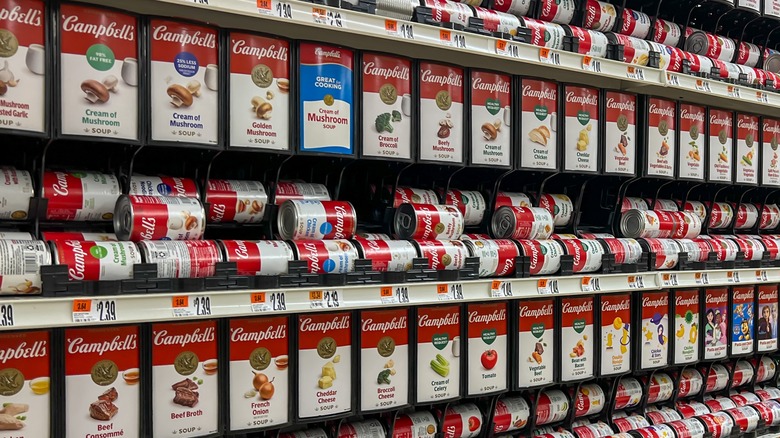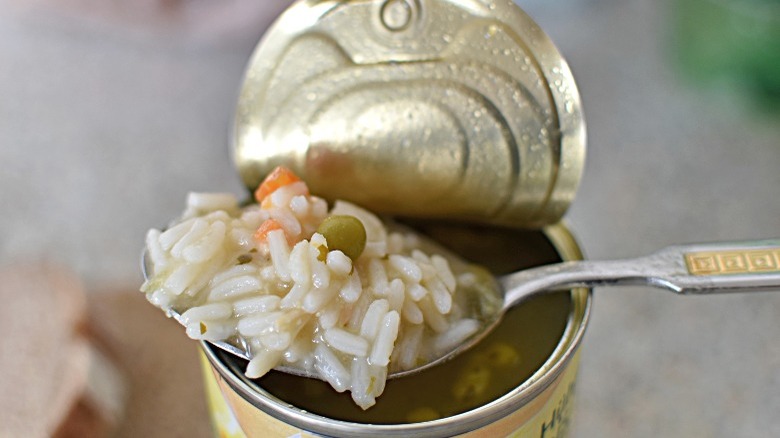Can You Eat Canned Soup Without Heating?
We're used to seeing it in post-apocalyptic films and TV shows. The protagonists gather around and enjoy a dinner of canned soup straight from the can. It may be the best or the worst canned soup on the market, but how realistic — and how appetizing — is that really? Well, after TikToker Alix Earle confessed in a video that she opens soup cans and eats them cold, that's the question everyone wants answered.
While this may seem nasty to some folks, Progresso brand manager Shannon Heine told People you can consume their canned soup at any temperature. (That's a good thing, as Progresso is the brand Earle confessed to eating.) Similarly, Campbell's states that their sipping soups are good at room temperature. But you can technically eat any canned soup — or canned food, for that matter — without heating it. That's because all canned food is precooked as part of the canning process.
When soup is canned, it's placed in vacuum-sealed containers that prevent air and bacteria from entering. The containers are subjected to a heating process at 250 degrees Fahrenheit, which kills microorganisms and deactivates the enzymes that cause spoilage. The vacuum seal is created as the cans cool, allowing for shelf-stable soup. So while chowing down on some cold, chunky soup isn't for everyone, it is absolutely safe. Moreover, eating cold soup can be a great option for campers or people living in areas prone to natural disasters. In fact, FEMA specifies that canned soup is useful to have on hand after disasters, particularly for the ill and elderly, making it one of the must-have canned foods for your pantry.
When it's not okay to eat canned soup
There are some instances when you should not only avoid eating cold canned soup, but throwing out the whole can is your best bet. For example, it may not be safe to eat from a dented can, so be cautious. Minor dents are okay if the can is in good shape overall, but cans with deep dents or dents around the seams, tops, and bottoms can be concerning. These dents could compromise the can's vacuum seal, allowing air and bacteria inside. That can lead to the propagation of C. botulinum, anaerobic bacteria that thrive in low oxygen and release neurotoxins as they grow. Low-acid foods are at the highest risk, and it's definitely not something to take lightly. If you can lay your finger into the dent, it's too deep.
Even if a can of soup isn't dented, that doesn't mean it lasts forever. Over time, cans can corrode, especially those containing acidic foods, like tomato soup. Likewise, high temperatures can be harmful and increase the chances of spoilage — so much so that canned goods sold in the tropics require specially manufactured cans.
On average, you can store canned soups between two and five years in a cool, dry place away from hot spots like stoves, furnaces, or direct sunlight. If you notice any bulging or leaking, toss the can immediately. You should also toss it if you open it and there's liquid spurting out, a foul odor, or a milky liquid when there shouldn't be any. If you follow these safety rules, you'll be A-okay in the event of an apocalypse — at least as far as canned soup goes.

